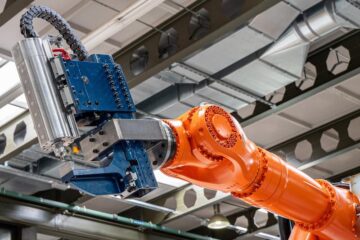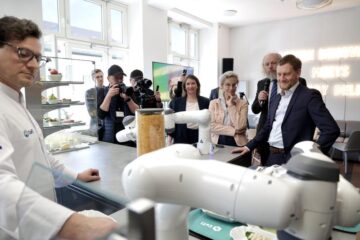Poverty And Environment Billions Could Be Wasted

Out-of-date policies are undermining unprecedented opportunities for recent aid commitments to improve the environment and combat poverty, according to scientists at a new global research centre launched today. The warning comes from the STEPS Centre, whose urgently needed new approach to development aims to respond to 21st century conditions.
We live in an era of unprecedented environmental and technological flux; apocalyptic predictions of climate change-induced drought and floods, avian ‘flu and HIV/AIDS pandemics, unsafe food and scarce water supplies hit the headlines daily. Rapid change is creating new interactions between people, environment and technology, but also new problems, such as novel strains of avian ‘flu and HIV drug resistances. Yet billions in aid could be wasted because current policy is failing to respond.
The STEPS Centre’s new approach sees natural and social scientists working together, instead of separately. STEPS research connects, social, technology and environment issues, rather than dividing them. It creates solutions that are adaptive to change, build resilience to uncertainty and meet the priorities of poor and marginalised people in different settings.
With £4m of funding from the Economic and Social Research Council, STEPS’s five-year programme of research, with partners in Africa, Asia and Latin America, focuses on agriculture, water and health. Initial projects include investigating the effects of climate change on maize crops in Kenya, urbanisation in India and drug regulation in China and Latin America.
Professor Melissa Leach, Director of the STEPS Centre explains:
“Silver bullets for poverty reduction are failing the poor and risk failing altogether. They assume one-size-fits-all solutions can be applied across a stable world. But we live in a world of dynamic change and uncertainty. The STEPS Centre aims to tackle these challenges head on, combining new theory with practical solutions that make science and technology work for the poor and environmental sustainability, building on people’s own knowledge.”
Greenpeace chief scientist Doug Parr, speaking at the launch, said STEPS’ work was “crucial”: “Meeting the needs of billions of people in ways compatible with a livable planet is a moral imperative but a huge challenge to our standard ways of thinking and working, in both North and South. Research which challenges assumptions underpinning failed, outmoded and unsustainable models of development is crucial to making the future work.”
Unprecedented opportunities to address these global challenges exist right now, with international interest and investment higher than ever: The G8’s $60bn pledge to fight disease in Africa; record levels of philanthropy – $1.5bn from the Gates Foundation in 2006; a £200m a-year search for global warming-proof crops by a consortium of governments.
But globalised one-size-fits-all solutions ignore differences on the ground and remain compartmentalised by geography, sector and discipline at a time when unparalleled interaction between people, the environment and technology demand interdisciplinary solutions.
Recent examples of these failings include the UN’s polio eradication programme in Nigeria which backfired because Muslims believed vaccination was a ploy to inject people with anti-fertility drugs. Polio is now resurgent in Nigeria; Gambian President Yahya Jammeh's claims to cure AIDS with herbal medicine which risks derailing anti-retroviral treatments; and local opposition to large dam building and the GM crop Bt cotton in India.
Dr Ian Gibson MP, chairing the STEPS Centre launch, said: “Science makes a massive contribution to our modern world. If we are to respond to the challenges of the twenty-first century, research like the STEPS Centre’s, that makes science and technology work for poor and marginalised people, is essential. Economic development, matters of health and disease, climate change; it is hard to see where science and technology will not be a major component for poverty reduction programmes.”
James Wilsdon, head of science and innovation at think tank Demos, speaking at the launch, said STEPS fills a “vital gap”: “The global landscape for science, technology and innovation is changing at an astonishing pace. But while the frameworks we use for analysing these changes are good at asking ‘how much?’ and ‘how fast?’ they are useless at asking questions about direction – the diversity of outcomes to which all of this activity and investment could lead. So the STEPS Centre will fill a vital gap: it will be a place where these questions can be asked and answered. I’m excited by the Centre’s vision, and I hope it will shake up established thinking about the relationship between science, technology, poverty and sustainability.”
STEPS will partner Demos in the second phase of the Atlas of Ideas project, which is mapping changes in the global geography of science and innovation.
Andrew Scott, policy director at charity Practical Action, also speaking at the launch, said: “The STEPS centre will help us understand how we can make technology development work in the interests of people living in poverty, rather than pander to the wants of the affluent.”
Media Contact
More Information:
http://www.esrc.ac.ukAll latest news from the category: Ecology, The Environment and Conservation
This complex theme deals primarily with interactions between organisms and the environmental factors that impact them, but to a greater extent between individual inanimate environmental factors.
innovations-report offers informative reports and articles on topics such as climate protection, landscape conservation, ecological systems, wildlife and nature parks and ecosystem efficiency and balance.
Newest articles

Real-time detection of infectious disease viruses
… by searching for molecular fingerprinting. A research team consisting of Professor Kyoung-Duck Park and Taeyoung Moon and Huitae Joo, PhD candidates, from the Department of Physics at Pohang University…

Mobility of the future, quantum technologies, space travel, transfer
The University of Stuttgart at Hannover Messe ’24. From sustainable mobility to quantum technologies and their potential: The University of Stuttgart will be showcasing exciting research projects, pioneering solutions, and…

Culinary pleasure meets innovative cutting-edge research
CeTI Cluster of Excellence at TU Dresden opens “robot kitchen”. April 15, 2024, the Cluster of Excellence Centre for Tactile Internet with Human-in-the-Loop (CeTI) at TUD Dresden University of Technology…





















